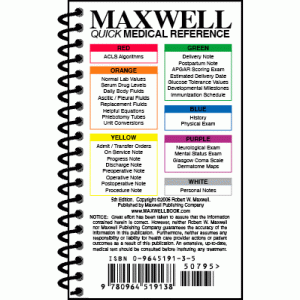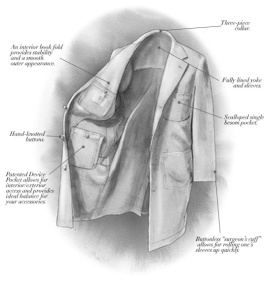As I walked toward the PICU with coffee in hand, I reach into the pockets of my freshly starched white coat. I have my cell phone, the attending phone and lip-gloss. I pause on the bridge connecting Texas Children’s with The Pavilion for Women and contemplate my to do list for the patients under my care. The traffic moves through the busy Texas Medical Center at its usual stop and go pace. It is a typical muggy Houston day and the residual damp air clings to my face after my short walk from the parking garage to the hospital.
A medical student catches my eye and I watch her rush by in her short white coat. Her hair is pulled up in a messy bun and she is moving at fast clip. In contrast to my coat, hers is dingy and wrinkled. A stethoscope dangles around her neck. Her coat is open and I note the full bulging pockets. It looks like she has some sort of reference book in each pocket. There is an otoscope stuffed into the corner and a reflex hammer that looks like its about to tip out. I recall what I carried as a medical student. My stethoscope of course, a reflex hammer, and a penlight. I always had several pens and my small Maxwell’s Medical Reference. I carried a pharmacology guide of some sort that weighed down my coat and made it hang at a disheveled angle. During my various rotations I had filled the pages of all my reference books with quick doses, clinical pearls and important pager numbers. I still have that old tattered Maxwell’s but now it sits in a folio on my desk. I don’t need it any more; Its contents have long since been memorized. I guess I save it because it’s a reminder of how much I didn’t know, how much I’ve learned, the wisdom I’ve acquired and the wisdom yet to come.


As a resident my pockets included a PALS code card, a laminated reference card of neonatal antibiotic dosing and a fluid calculation guide. The card had the formulas for deriving maintenance fluids for a patient, sodium doses for hyper or hyponatremia and other quick fixes for the typical dyselectrolytanemias of the pediatric patient. I always had a calculator in order to quickly check doses, derive TPN, and double check drip orders. As a pediatrics intern I also carried the Harriet Lane Handbook, manual of Pediatrics. It was fat and heavy and by the end of my intern year it was dog-eared and coffee stained. I still carried the Maxwell’s but relied on its contents less and less. I always had a stack of notecards to track the interventions on my patients and to jot notes about new admissions or things I needed to look up when I had a chance. My patient list filled with cross outs and various tasks to complete was a rumpled mess by the end of the day.
Towards the end of my intern year, I started to carry a favorite lip-gloss. It was a muted shade and just a step above Chap Stick. But I always had it. Its mere presence in my pocket was comforting and I liked to roll the tube between my fingers. I played with it until the gold detail along the outside of the tube rubbed off. The physical act of reaching into my pocket, finding the tube and rolling it around in my fingers offered comfort during times of stress. When talking to attendings or feeling lost about an issue I reflexively loosened and retightened the cap. It gave me time to think, time to process the problem at hand. I didn’t need it for the cosmetic effect since I only applied it at the start of the day; I just liked having it in my pocket. And I felt at sea without it.
As I’ve transitioned from medical student to resident to fellow to attending, I have lightened the load of my pockets. I no longer carry the Maxwell’s or code cards. I know all those doses by heart. As an attending I don’t have to write TPN orders or calculate fluid orders – although those things became rote years ago. Sometimes I carry a business card but that is light and can easily be lost. Since I am not much of a networker, I only give it out when a patient has died or when a policeman needs to contact me because my patient is a victim of abuse. I usually keep a credit card or a thin wallet so I can replenish coffee for my hardworking residents, fellows and nurses or myself.
Although my pockets have lightened, my burden has become heavier. Perhaps that’s why I walk slower now. I no longer have the optimistic pep and drive of the young medical student or the purposeful stride of a senior resident. Now, I move slowly toward the unit and meander through the patient pods as I survey the monitors and quickly process patterns of vital signs on the monitors above each bed. As an attending I am stripped naked. I can’t hide behind knowing all the easy answers that can be gleaned from reference texts. I am responsible for progressing care, knowing when to stop and knowing when to push forward. I have learned that practicing good medicine has less to do with an armamentarium of resources and tools in your pockets and more to do with acquired wisdom through failures and successes. No matter how much you know, how many doses you’ve memorized, how many procedures you’ve done, it is the connection you make with your patient in the bed and the parents at the bedside that makes you a good doctor. I guess as my pockets have emptied out, I’ve gotten smarter. But I still carry at least one lip-gloss as a talisman and a reminder to pause and contemplate the enormous trust the family and patient have given me.
Dr. Gwen! I love this! Hard to imagine there was ever a time you needed any reference books, but such a beautiful description of what makes YOU a great doctor.
XOXO, Allie
LikeLike
You are way too kind! Thanks for reading.
LikeLike
What a BEAUTIFUL piece, Gwen!!!!
LikeLike
Gayle that means so much to me – thanks and congrats again on your Huff Post piece! You rock.
LikeLike